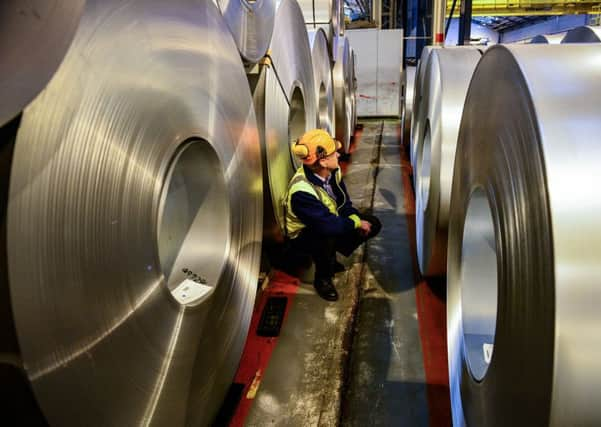Cost of relocating clearing banks runs higher and higher


New forecasts by the Centre for Economics and Business Research (Cebr) show that the UK economy will grow by just 1.3 per cent in 2017, a substantial downward revision from an earlier forecast of 1.7 per cent.
The forecast for 2018 has also been revised down to 1.2 per cent from 1.6 per cent in the face of “newly created political uncertainty”, lower business investment because of Brexit and weaker consumer spending.
Advertisement
Hide AdAdvertisement
Hide AdIf borne out, this would make 2018 the year with the slowest GDP growth since 2009, the height of the financial crisis.


However, in brighter news it believes a deal with the EU “will emerge in the coming years” and that confidence will rebound, leading to stronger growth after 2018.
Cebr expects GDP to expand by 1.6 per cent in 2019 and by 1.9 per cent in 2020, upward revisions from pre-election forecasts of 1.5 per cent and 1.8 per cent.
Consumers have seen their spending power come under increasing pressure from soaring inflation triggered by the collapse of the pound following Britain’s vote to leave the European Union, which has in turn impacted high street sales.
Advertisement
Hide AdAdvertisement
Hide AdLast week, data from Gfk showed that consumer confidence has collapsed to post-Brexit vote lows. Against this background, the Cebr believes that the Bank of England will not raise interest rates until the end of 2018, rather than earlier in the year.


Nina Skero, head of macroeconomics at Cebr, said: “Our data on confidence show that the newly-created political uncertainty is highly likely to weigh on growth in the short term.
“This means that we now do not expect an interest rate rise until the end of 2018. But we now think that a deal with the EU on Brexit is more likely than previously seemed which will benefit both the UK and the remaining members of the EU.
“We have therefore revised up our forecasts for growth for the period from 2019 onwards.”
Advertisement
Hide AdAdvertisement
Hide AdThe news comes after AFME, The Boston Consulting Group (BCG) and Clifford Chance published research showing European businesses are not yet prepared for a change in the wholesale banking landscape.
The Bridging to Brexit: Insights from European SMEs, Corporates and Investors report shows that, while measures can be taken to continue offering the same services through different structures, this will result in greater fragmentation of banks’ use of capital, and a likelihood of reduced aggregate capacity for financing and other wholesale banking services.
Other key findings were that
- Businesses are primarily worried about the direct impacts of a hard Brexit, such as trade barriers, movement of labour, increased compliance and customs costs.
- Brexit-driven concerns relating to wholesale banking services are sector specific. Both SMEs and large corporates are worried about access to credit.
Advertisement
Hide AdAdvertisement
Hide Ad- Investors are concerned that Brexit will induce a complex exercise of re-documenting existing derivatives and other trading relationships.
Simon Lewis, Chief Executive at AFME, said: “The clear message from our report is that our interviewees, especially small firms with customers or suppliers cross-border, believe that a hard Brexit could impact their business and growth.
“Large corporates, in particular, are concerned about loss of efficiency and fragmentation in conducting cross-border business.
“Both SMEs and large corporates also face potential disruption in the provision of wholesale financial services which in turn will lead to a higher cost of capital for businesses. That is why above all else business would like the status quo preserved.”